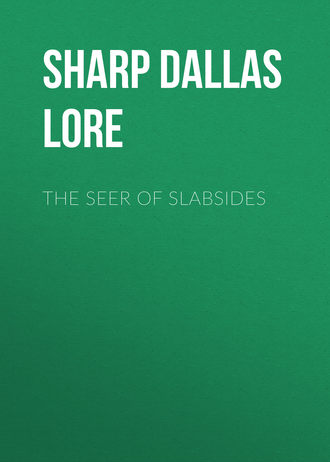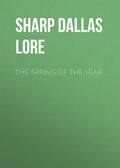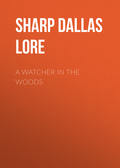
Sharp Dallas Lore
The Seer of Slabsides
Many men have written more than John Burroughs. His twenty-five volumes are perhaps nothing remarkable for sixty years of steady writing. But it is remarkable to come up to four and eighty with one book just off the press, two more books in manuscript to appear after the light has failed; for there is still a book of miscellaneous papers, and some studies on Emerson and Thoreau yet to be published.
And I think it a rather remarkable lot of books, beginning with "Wake-Robin," running down through the titles, with "Winter Sunshine," "Birds and Poets," "Locusts and Wild Honey," "Pepacton," "Fresh Fields," "Signs and Seasons," "Riverby," "Far and Near," "Ways of Nature," "Leaf and Tendril," "The Summit of the Years," "Time and Change," "The Breath of Life," "Under the Apple-Trees," and "Field and Study," to "Accepting the Universe," for these books deal very largely with nature, and by themselves constitute the largest, most significant group of nature-books that have come, perhaps, from any single pen.
These sixteen or seventeen volumes are John Burroughs's most characteristic and important work. If he has done any desirable thing, made any real contribution to American literature, that contribution will be found among these books. His other books are eminently worth while: there is reverent, honest thinking in his religious essays, a creedless but an absolute and joyous faith; there is simple and exquisite feeling in his poems; close analysis and an unmitigatedness wholly Whitmanesque in his interpretation of Whitman; and no saner, happier criticism anywhere than in his "Literary Values." There are many other excellent critics, however, many poets and religious writers, many other excellent nature-writers, too; but is there any other who has written so much upon the ways of nature as they parallel and cross the ways of men, upon so great a variety of nature's forms and expressions, and done it with such abiding love, with such truth and charm?
Yet such a comparison is beyond proof, except in the least of the literary values – mere quantity; and it may be with literature as with merchandise: the larger the cask the greater the tare. Charm? Is not charm that which I chance to like, or you chance to like? Others have written of nature with as much love and truth as has John Burroughs, and each with his own peculiar charm: Audubon, with the spell of wild places and the thrill of fresh wonder; Traherne, with the ecstasy of the religious mystic; Gilbert White, with the sweetness of the evening and the morning; Thoreau, with the heat of noonday; Jefferies, with just a touch of twilight shadowing all his pages. We want them severally as they are; John Burroughs as he is, neither wandering "lonely as a cloud" in search of poems, nor skulking in the sedges along the banks of the Guaso Nyero looking for lions. We want him at Slabsides, near his celery fields, or at Woodchuck Lodge overlooking the high fields that run down from the sky into Montgomery Valley. And whatever the literary quality of our other nature-writers, no one of them has come any nearer than John Burroughs to that difficult ideal – a union of thought and form, no more to be separated than the heart and the bark of a live tree.
Take John Burroughs's work as a whole, and it is beyond dispute the most complete, the most revealing, of all our outdoor literature. His pages lie open like the surface of a pond, sensitive to every wind, or calm as the sky, holding the clouds and the distant blue, and the dragon-fly, stiff-winged, and pinned to the golden knob of a spatter-dock.
All outdoor existence, all outdoor phenomena, are deeply interesting to him. There is scarcely a form of outdoor life, scarcely a piece of landscape, or natural occurrence characteristic of the Eastern States, which has not been dealt with suggestively in his pages: the rabbit under his porch, the paleozoic pebble along his path, the salt breeze borne inland by the Hudson, the whirl of a snow-storm, the work of the honey bees, the procession of the seasons over Slabsides, even the abundant soil out of which he and his grapes grew and which, "incorruptible and undefiled," he calls divine.
He devotes an entire chapter to the bluebird, a chapter to the fox, one to the apple, another to the wild strawberry. The individual, the particular thing, is always of particular interest to him. But so is its habitat, the whole of its environment. He sees the gem, not cut and set in a ring, but rough in the mine, where it glitters on the hand of nature, and glitters all the more that it is worn in the dark. Naturally John Burroughs has written much about the birds; yet he is not an ornithologist. His theme has not been this or that, but nature in its totality, as it is held within the circle of his horizon, as it surrounds, supports, and quickens him.
That nature does support and quicken the spiritual of him, no less than the physical, is the inspiration of his writing and the final comment it requires. Whether the universe was shaped from chaos with man as its end, is a question of real concern to John Burroughs, but of less concern to him than the problem of shaping himself to the universe, of living as long as he can upon a world so perfectly adapted to life, if only one be physically and spiritually adaptable. To take the earth as one finds it, to plant one's self in it, to plant one's roof-tree in it, to till it, to understand it and the laws which govern it, and the Perfection which created it, and to love it all – this is the heart of John Burroughs's religion, the pith of his philosophy, the conclusion of his books.
But if a perfect place for the fit, how hard a place is this world for the lazy, the ignorant, the stubborn, the weak, the physically and spiritually ill! So hard that a torpid liver is almost a mortal handicap, the stars in their courses fighting against the bilious to defeat them, to drive them to take exercise, to a copious drinking of water, to a knowledge of burdock and calomel – to obedience and understanding.
Underlying all of John Burroughs's thought and feeling, framing every one of his books, is a deep sense of the perfection of nature, the sharing of which is physical life, the understanding of which is spiritual life, is knowledge of God himself, in some part of His perfection. "I cannot tell what the simple apparition of the earth and sky mean to me; I think that at rare intervals one sees that they have an immense spiritual meaning, altogether unspeakable, and that they are the great helps, after all." How the world was made – its geology, its biology – is the great question, for its answer is poetry and religion and life itself. John Burroughs was serenely sure as to how the world was made; the theological speculation as to why it was made, he answered by growing small fruits on it, living upon it, writing about it.
Temperamentally John Burroughs was an optimist, as vocationally he was a writer, and avocationally a vine-dresser. He planted and expected to gather – grapes from his grapevines, books from his book-vines, years, satisfactions, sorrows, joys, all that was due him.
The waters know their own and draw
The brook that springs in yonder heights;
So flows the good with equal law
Unto the soul of pure delights.
And what is it that was due him? Everything; everything essential; as everything essential is due the pine-tree, the prairie, the very planet. Is not this earth a star? Are not the prairie, the pine-tree, and man the dust of stars? each a part of the other? all parts of one whole – a universe, round, rolling, without beginning, without end, without flaw, without lack, a universe self-sustained, perfect?
I stay my haste, I make delays,
For what avails this eager pace?
I stand amid the eternal ways,
And what is mine shall know my face.
John Burroughs came naturally by such a view of nature and its consequent optimism. It was due partly to his having been born and brought up on a farm where he had what was due him from the start. Such birth and bringing-up is the natural right of every boy. To know and to do the primitive, the elemental; to go barefoot, to drive the cows, to fish, and to go to school with not too many books, but with "plenty of real things" – these are nominated in every boy's bond.
Serene, I fold my hands and wait,
is the poem of a childhood on the farm, and the poem of a manhood on the farm, in spite of the critic who says:
"We have never ceased to wonder that this friend of the birds, this kindly interpreter of nature in all her moods, was born and brought up on a farm; it was in that smiling country watered by the east branch of the Delaware. No man, as a rule, knows less about the colors, songs, and habits of birds, and is more indifferent to natural scenery than the man born to the soil, who delves in it and breathes its odors. Contact with it and laborious days seem to deaden his faculties of observation and deprive him of all sympathy with nature."







